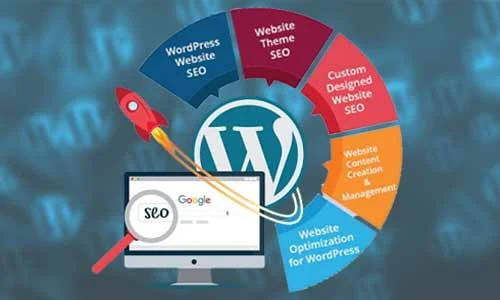HR professionals and students who want to learn about how organizations work find Unit 5CO01 in the CIPD certification really helpful. It teaches about Organizational Performance and Culture in depth. It’s not just a regular lesson; it really gets into the core factors that make organizations successful or unsuccessful. The curriculum of CIPD 5CO01 is comprehensive and helps you understand how to create a culture that supports high performance.
The Significance of Organizational Performance and Culture
Many people feel a mix of nerves and excitement when they start Unit 5CO01. Some see it as a step forward in their career, while others see it as a way to learn what makes great workplaces stand out. Nowadays, in human resources, we know that a company’s success is closely tied to its culture – its values, beliefs, and how people behave there. It’s all connected to how well the company performs financially.
Organizational culture shapes the employee experience, which in turn impacts performance and ultimately, the company’s objectives. It sets the tone for the kind of environment in which employees work every day, influencing their morale, engagement, and even health.
But how do you assess and define a culture? How do you measure performance in a way that’s reflective of the true health of an organization? And critically, how do you, as an HR practitioner, influence and shape culture to drive performance?
The Levers of Organizational Improvement
In this unit, students learn about different models and frameworks that can help them understand organizational culture and performance better. The goal isn’t to use the same solution for every organization but to give HR professionals tools they can adjust to fit their own organization’s needs.
The main focus is on how leaders influence culture. The leaders’ behavior sets an example for everyone else, so Unit 5CO01 talks about what qualities leaders need to support the culture.
Analyzing and Measuring Culture
Understanding organizational culture might seem tricky, but with different tools and methods, we can get a clear picture of it. This module teaches about the culture maturity model, which helps you see where your organization stands in terms of cultural growth.
We will dissect the means through which HR can measure culture and performance – from surveys to key performance indicators (KPIs). We’ll explore the role of data analytics in identifying trends and patterns that depict the cultural landscape.
One key takeaway is the importance of understanding cultural alignment with business strategy. When the two are in harmony, you have a powerful engine for competitive advantage. But when they diverge, inefficiency and conflict can arise, impeding the path to success.
You can also read a blog, Solutions for Coding Assignments

Shaping Culture Through Leadership and Strategy
Leadership and strategy act as the rudders steering the cultural ship. The 5CO01 unit discusses how HR professionals can collaborate with leadership to align initiatives with the company’s strategic objectives, ensuring that the culture serves as an enabler rather than a barrier.
We’ll explore the challenges and opportunities inherent in driving cultural change, a task that often demands both patience and persistence. Cultural change is not about flipping a switch but about a systemic metamorphosis that needs consistent, thoughtful effort and structured change management.
Conversely, we’ll also look into organizational structures and how they influence culture. The flat hierarchies of modern organizations, for instance, are often reflective of a culture that values transparency, collaboration, and agility.
Ethics and the Role of HR in Cultural Stewardship
Unit 5CO01 shines a light on the ethical considerations of cultural management, particularly in the wake of the global movement for more inclusive and equitable workplaces. HR professionals, as the custodians of culture, must ensure that their practices and policies are aligned with the ethical framework of the organization and its stakeholders.
We’ll discuss the importance of embedding ethics into the fabric of the culture and how it can lead to more sustainable performance. The discussion will take in current trends such as the ‘purpose-driven organization’ and ‘stakeholder capitalism’, and how they are shaping the expectations of employees and customers alike.
CIPD assignment help 5CO01 Organizational Performance is likely to help students understand the link between organizational culture and performance and how companies can create a culture that supports success.
Aligning HR Practices with Organizational Culture
The unit does not stop at theory but extends to the practical application of HR processes that reinforce the culture. From recruitment and selection practices designed to bring in candidates who resonate with the culture, to learning and development programs that further assimilate these values, HR’s role is multi-faceted and central.
We’ll examine the impact of reward systems on culture and performance. Reward systems, when thoughtfully designed, can be powerful motivators aligned with the organization’s goals and values. However, when misaligned, they can become sources of demotivation and discord.
Furthermore, the module addresses the critical role of employee relations in sustaining a healthy culture. Conflicts and grievances, if left unaddressed, can fester and become indicative of deeper violations in the cultural fabric.
Case Studies and Real-World Application
Learning doesn’t happen in a vacuum and the 5CO01 unit grounds its principles in real-world examples and case studies. These studies will help you contextualize the course materials applying the learnings to actual organizational settings.
The inclusion of these case studies offers a dual benefit: it not only demonstrates the diverse range of cultural landscapes but also encourages you to think critically and creatively about how to apply the insights to your professional domain.
The Future of Organizational Culture and HR
We’ll conclude by peering into the crystal ball and reflecting on where the union of HR practice and organizational culture might be headed. The future may hold more integrated approaches, where HR technology enables real-time insights and interventions, and where cultural adaptability becomes a core competency for organizations.
The final analysis will underscore the imperative for HR professionals to remain agile, informed, and willing to champion cultural evolution. By understanding the intricacies of Organizational Performance and Culture, you not only enhance your professional standing but also contribute to a larger movement of creating more fulfilling and effective workplaces.
For those navigating the 5CO01 unit, it’s an exciting and intellectually enriching voyage. You are sculpting yourself to be a more impactful HR practitioner by engaging with the materials. Your certificate upon completion is not just a mark of academic achievement but a symbol of your commitment to driving a better workplace for the organizations you serve.





